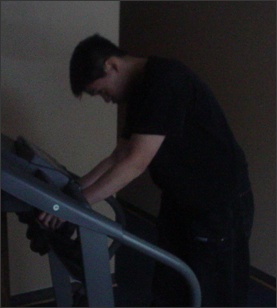|
"Holy cow," I can hear you saying
right after you read that, "who would have thought there were chemical reactions making important
growing decisions in body fat?"
|
| |
|
Here's more on that fact: How much body fat you carry can be measured and usually that means
finding the BMI. That stands for Body Mass Index and we all have one but we don't all know if our
BMI is good or bad. Let me tell you how to calculate your BMI so that you can see if it is good or
bad for you.
|
| |
|
Write down your height, age and how much you weigh. If you don't have the exact figures, do not
estimate. Instead, measure your height, use the age of your last birthday and weigh yourself (use
a digital scale; if you don't have one, go to a store and buy one; digital scales are not expensive
and you should be able to afford one, especially if you have a steady job).
|
| |
|
Next, write down your pants size. Then, write down the goal you have set for your weight. If you
have not set a goal yet, then take some time to think about the best weight for yourself. Then,
write down your activity level by gauging your activity as "a lot", "a little" or "none".
|
| |
|
Take all of this information and bring it to your doctor the next time you have an appointment.
If you decide to have two stacks of pancakes or a box of fried chicken or a large piece of
chocolate cake before you go to a doctor's appointment, forget all of the things I told you to
write down and consider your BMI unhealthy and be prepared to become nauseated when your doctor
examines you, even though your organs are probably protected well enough to help you survive a
minor fender bender on the way to your appointment.
|
| |
| Frank Cotolo can be found hosting the talk and interview programme Cotolo Chronicles. You
can send him an e-mail at this address: frank@148.ca.
|





 Copyright © 2009-2016 SRN Mediaworks Productions, in association with Frank Cotolo.
Copyright © 2009-2016 SRN Mediaworks Productions, in association with Frank Cotolo.